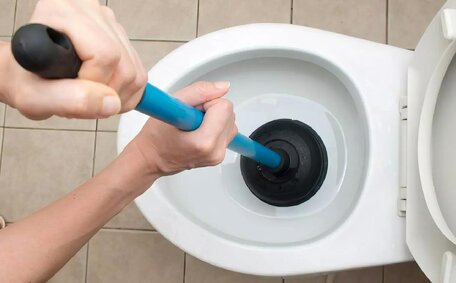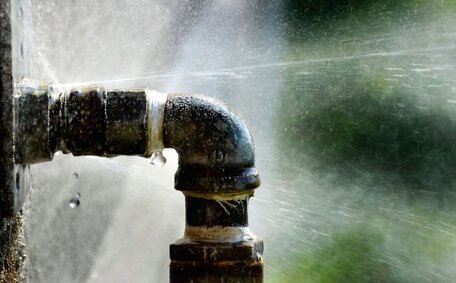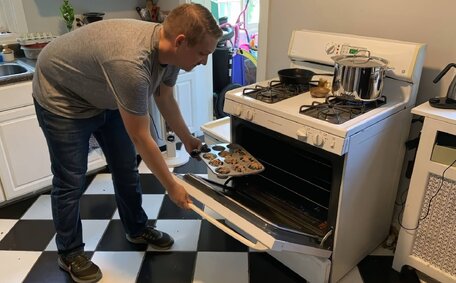Understanding Grease and Food Buildup: What Causes Clogged Pipes
Grease, oil, and food debris are leading causes of blocked drains and pipes. Things like cooking oils, fats, coffee grounds, and food scraps easily cling to pipe walls over time. As layers can build up, water flow slows until a full blockage occurs.
Households often inadvertently exacerbate oil and grease-related problems in their drains.
Using grease traps captures oils and grease before they enter your plumbing system, helping to prevent blockages. Do not flush items like baby wipes and so-called 'flushable’ toilet paper, as they can damage your drainage system. Over time, this debris traps other solids, making their way into a mass that restricts water flow.
Left unchecked, accumulations can lead to a blocked drain that can become fully obstructed, which can result in gurgling sounds, very slow drainage, and foul odours. Neglecting a blocked drain can lead to sewage backup, posing health risks, causing flooding and resulting in expensive repairs.
To prevent these issues, avoid disposing of oils and grease in your toilet and apply other preventative measures. Avoid pouring fats and oils down the drain, use mesh strainers, regularly flush pipes with hot water, and dispose of food waste appropriately. For existing buildup, High-pressure water jetting, carried out by professional drain cleaning services, can thoroughly cleanse affected pipes.
Pipe relining tackles the root cause of drain blockages, such as grease and oil buildup, by installing a protective lining inside the pipes. This helps ensure substances don’t find their way down to clog up your drain pipes, guaranteeing functionality for decades.
How Pipe Relining Prevents Future Blockages
Pipe relining is a modern solution that prevents blockages from grease, food waste, and other debris such as tree roots. Pipe relining involves inserting a protective epoxy lining inside existing pipes, eliminating the need for costly excavation or pipe replacement.
Before inserting the epoxy resin liner, a CCTV drain camera is utilised to assess and inspect the pipes thoroughly. The liner then hardens, forming a smooth, watertight seal where water in the drain can flow unobstructed and strengthens pipes from within, because we know the importance of a reliable plumbing infrastructure. Leaks, cracks, and root infiltration points are permanently sealed off making the process effective.
This epoxy barrier acts as an impenetrable shield to block items like nappies, grease fat, oils, food scraps, and tree roots from accumulating inside pipes and causing future clogs. By stopping debris and root systems accumulation at the source, with the way water runs after pipe relining provides a reliable, long-term solution to drainage problems.
By improving flow capacity and preventing blockages, pipe relining can significantly extend your plumbing system’s useful life. Pipe relining technology saves considerable excavation, repiping and landscaping costs, while This procedure ensures the prolonged durability of your drainage system. Maintaining the enhanced structural integrity of relined pipes prevents failures and recurrent blockages.
It’s crucial for homeowners to properly dispose of cooking oils and fats – not down the sink – and install basket strainers to prevent food waste from blocking pipes. Combined with professional pipe relining, this keeps plumbing flowing freely with zero drainage issues. Contact our team to learn more about achieving lasting results with pipe relining services.
Comparing Pipe Relining to Traditional Drain Repairs
A professional plumber may suggest fully replacing affected pipe sections when dealing with a blocked or damaged drain. This typically involves extensive excavation to access and remove old piping before the new drainage pipes can be installed.
In contrast, pipe relining inserts a durable epoxy barrier lining inside the existing pipes without any major digging needed. Relining seals cracks and holes, preventing debris infiltration or water leakage from passing through your infrastructure into surrounding soil. The minimally invasive pipe relining process safeguards landscapes, driveways, and infrastructure.
Traditional pipe replacement typically disrupts property, requiring demolition of concrete and pavements to reach the pipes. Following the installation of new pipe segments, often necessary after burst pipes, extensive restoration work carried out to rebuild driveways, pathways and landscaped areas.
Pipe relining is less invasive and can be completed within just a few days, ensuring minimal surface impact. The carbon footprint is also up to 90% lower without heavy machinery exhaust emissions and landfill waste from removed concrete/soil. Structural pipe relining costs around $3000 on average, compared to the $5000 or more required for traditional pipe replacement.
The trenchless technique of pipe relining eliminates the need for extensive excavation and repaving when tackling drainage issues. Instead, it seals and reinforces your existing pipes from the inside with an impenetrable epoxy shield that blocks debris accumulation for 50+ years of guaranteed performance.
When to Consider Professional Pipe Relining
There are a few key signs blocked drain issues are present that indicate they may require professional pipe relining services:
- Consistently slow-draining in your sinks, tubs, or showers, frequently due to soap scum accumulation
- Frequent clogs in sewer drains, a scenario occurring more than once every month
- Gurgling sounds coming from inside your pipes
- Storm water drains being overwhelmed and pooling around your property after rain
- Unusual odours emanating from drains
- Rust stains appearing under your bathroom or laundry fixtures, which is a situation to contact your local plumbing professional about
Should you encounter any signs of a blocked drain your plumber should promptly inspect your plumbing for potential drain repair. From drain repairs to full drain renovations, Our drain services are readily available to unblock your plumbing and restore it to prime condition.
At Brighton-Le-Sands Plumbing & Gas, our experts specialise in diagnosing and resolving a range of plumbing issues in the Sydney region.
For recurring blockages or leaks in antiquated clay pipes, pipe relining serves as a durable solution. Reinforcing pipes from within wards off future debris accumulation for over 50 years and repairs existing damage.
Compared to traditional pipe replacement, which necessitates significant property excavation, relining saves homeowners substantial funds and inconvenience as no major digging makes their way into the process.
We provide obligation-free quotes and customised solutions alongside guaranteed results. Contact our team at 1300 349 338 or [email protected] for responsive assistance.
With advanced cctv cameras, quality hydrojetting and professional pipe relining equipment, our services clear your blocked plumbing systems and maintain them functional for the long-run.
Choosing a Qualified Plumber for Pipe Relining
When selecting a plumber for pipe relining, it is important to consider the following:
- Ensure your plumber is licensed and certified, meeting all state and local requirements. Confirm they have proper credentials for pipe relining specifically.
- Choose a company with extensive experience in pipe relining, with a history of successful outcomes.
- Reputation & Reviews - Read online reviews and testimonials to gauge the plumber’s quality of service and reliability. Check ratings on Google along with industry associations.
- Insurance - Confirm the plumber carries both general liability insurance and workers compensation coverage for projects.
- Familiarity with Local Codes - Opt for a local plumber well-versed in state plumbing codes and drainage regulations for your area.
- Service Ethic - Select a plumber who responds promptly, provides fair pricing with detailed quotes, and emphasises communication every step of the way.
Here Our team at Brighton-Le-Sands Plumbing is fully licensed, insured, and has over 50 years of combined experience in pipe relining. We adhere to Sydney’s regulatory standards and guarantee results for epoxy barrier installations. Contact us at 1300 349 338 for help from highly-skilled professionals.
Maintaining Clean Pipes with Regular Drain Maintenance
Routine drain maintenance is vital in preventing recurring grease and food buildup, ensuring you maximise the benefits of pipe relining.
After professional pipe relining, simple cleaning routines help prolong results. Use sink strainers to catch food scraps, avoid pouring fats/oils down drains, and be diligent with waste disposal. Complement by occasionally flushing pipes to clear light debris before major obstructions form.
Effective Preventative Drain Care Steps
- You can use sink basket strainers to catch scraps
- Wipe off excess fats and grease before washing dishes to prevent them from entering the drains.
- Discard food waste in the bin, not down sink
- Collect used cooking oil in containers for proper disposal
- Flush pipes monthly by pouring boiling water baking soda down sinks
- Utilise A plunger or a drain snake to clean out blocked passages
- Avoid caustic cleaners, opting for natural solutions rather than those which can damage epoxy linings
Stay vigilant to prevent substantial buildup, allowing the enzymes to break down grease inside newly lined pipes. If grease accumulates, consider home remedies or try an enzymatic drain cleaner monthly. Seek professional assistance, or try a baking soda and vinegar mix if serious blockages still occur.
Regular care can extend the life of quality epoxy pipe relining to over 50 years. Proper drain maintenance is key to avoiding blockages and backflows in your home. Contact our team if you have any questions.






